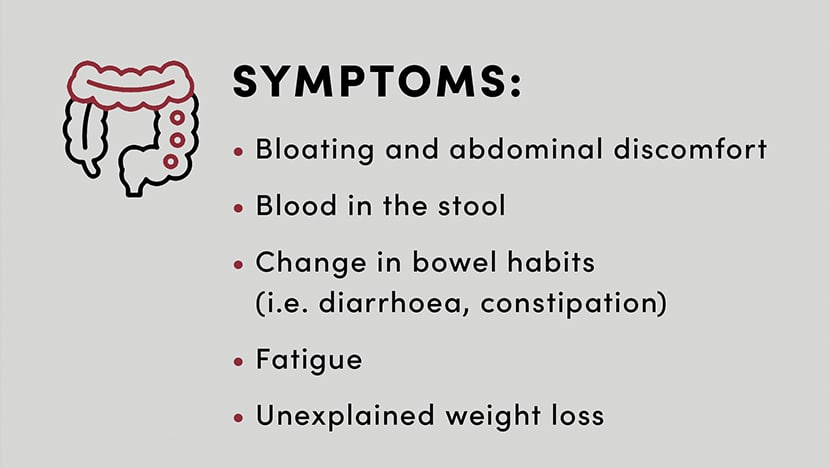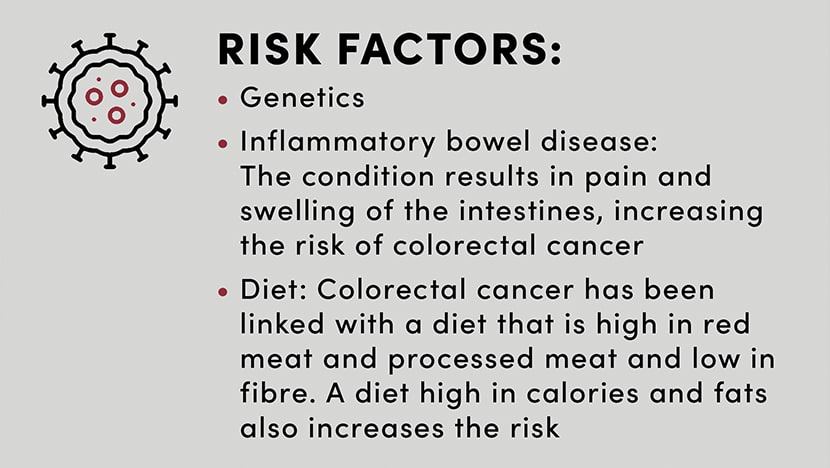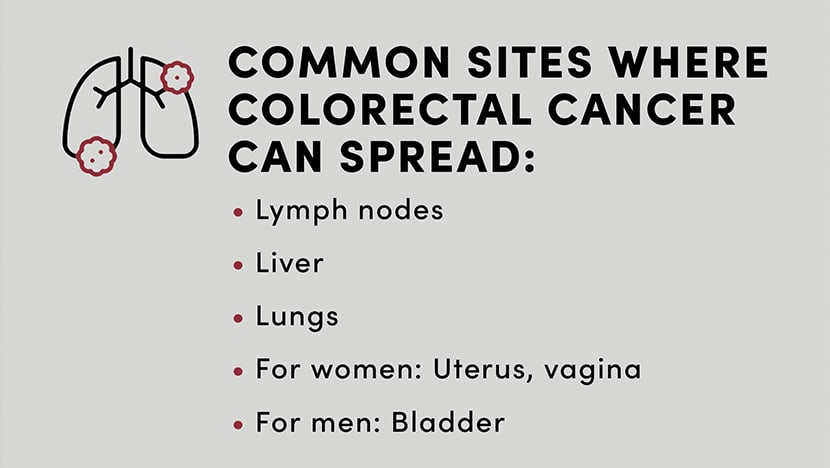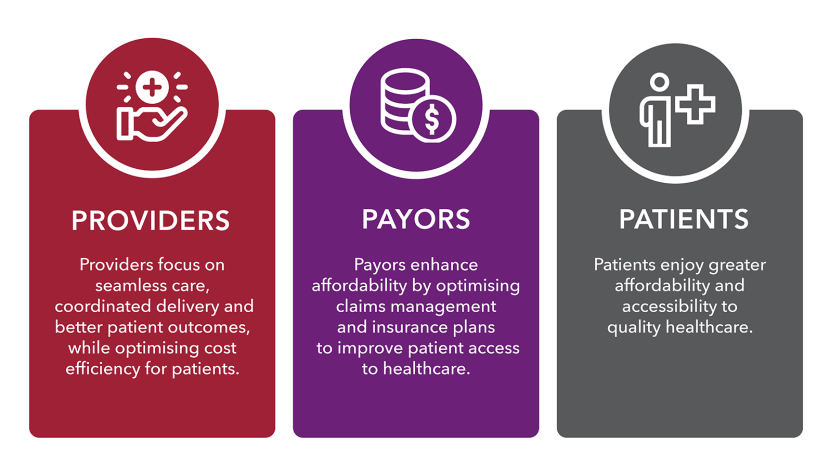Before her diagnosis in October 2024, colorectal cancer was far from Mdm Kris Chow’s mind.
The 50-year-old bakery assistant sought medical attention after experiencing symptoms like difficulty passing motion and blood in her stool for about two weeks. When medication from her general practitioner failed to alleviate the symptoms, she was referred for a follow-up endoscopy at Farrer Park Hospital.
There, gastroenterologist Dr Loh Poh Yen performed a colonoscopy using an artificial intelligence (AI)-assisted endoscopic system, which led to the discovery of tumours in her colon.
Following further assessment, including a PET scan, Mdm Chow was shocked to learn she had Stage 4 colorectal cancer. “I was devastated and collapsed on the spot,” Mdm Chow recalled. “I had no awareness of what colorectal cancer was; as far as I knew, no one in my family had ever been diagnosed with it.”

Colorectal cancer is one of the most common cancers in Singapore, ranking as the second-most prevalent type of cancer among both men and women. It can affect any part of the colon and rectum, with the potential to spread to nearby lymph nodes, or through the bloodstream to organs such as the liver and lungs.
In Mdm Chow’s case, the cancer had already spread to her liver, ovaries and fallopian tubes. “[After my diagnosis] I didn’t feel very optimistic, but thankfully the doctors were both encouraging and professional,” she shared.
According to her oncologist Dr Tan Yew Oo, Mdm Chow’s case was atypical. “She had minimal symptoms, and by the time she was diagnosed, the cancer had already spread. “This made her unsuitable for immediate surgery,” he explained. “For such cases, the best form of treatment is to start with chemotherapy to shrink the tumours before proceeding with surgery.”










NAVIGATING STAGE 4 CANCER
Under the care of her medical team at Farrer Park Hospital, led by Dr Tan, Mdm Chow's treatment began with chemotherapy. After completing six cycles, she experienced breathing difficulties due to an allergic reaction to the drug – something that can occur after prolonged exposure, explained Dr Tan. She was then switched to an alternative chemotherapy drug and responded well to it.
In February this year, she underwent the first of two liver surgeries with Dr Stephen Chang to remove tumours in the left lobe of her liver. During the procedure, Dr Chang also blocked blood flow to the right lobe. “This allows the left liver, now free of tumours, to regenerate and grow, making the second surgery to remove the right liver safer,” he explained.
“I felt comfortable and reassured throughout my treatment. Even during the operation, I felt safe being under their care, despite my fears,” said Mdm Chow.
Six weeks later, a second surgery was performed to remove the entire right liver, where more tumours were located. “We couldn’t remove all the tumours in one surgery, as too little liver would remain for her to survive,” said Dr Chang.
He added that in the past, patients with tumours in both lobes of the liver were considered incurable. “Today, with improved surgical techniques and a better understanding of liver regeneration, more patients have a real chance at recovery.”

Despite her treatment progress, Mdm Chow faced both physical and emotional challenges. She experienced hair loss, cracked nails and myriad skin issues, and was referred to a specialist for treatment. “It was challenging to remain positive all the time,” she said. “I had to learn to stay calm, not overthink, and simply let things be.”
Throughout her cancer journey, Mdm Chow found strength in the unwavering support of her husband, who left his job as an engineer to care for her full-time, and their 23-year-old son. “My family takes good care of me and always offers encouragement when I’m feeling low,” she shared.
Her husband, Mr Eddie Law, said: “She’s not fighting cancer alone – we’re in this together as a family.” Their son echoed this sentiment, praising Mdm Chow’s strength and resilience: “My mum is the strongest woman I know. I truly admire her positive attitude throughout her treatment.”
Mdm Chow was also uplifted by the positivity of her doctors and the compassionate care from the nursing team. Encouraging progress in her cancer index further motivated her, with significant improvements seen throughout her treatment. Her colon is now cancer-free, and she is completing the final few cycles of chemotherapy.
Nevertheless, the high cost of cancer treatment remains a concern for Mdm Chow. “Since neither my husband nor I are working at the moment, we have difficulty covering some of the medication costs,” she shared. Recognising the challenges patients face, Farrer Park Hospital adopts a collaborative, multi-stakeholder approach to optimise every aspect of healthcare delivery – with the goal of improving patient health and well-being while ensuring care remains affordable and accessible.

CANCER IS NOT A DEATH SENTENCE
Although the mention of cancer strikes fear among many, Dr Tan stresses that cancer is “not a death sentence”, noting that while the number of cancer cases has gone up over the decades, so has the survival rate.
According to the National Registry of Diseases Office, the mortality rate for cancer has reduced by 23 per cent over the last 50 years. “Even for patients in advanced stages of cancer, we hope that, like Mdm Chow, they can be cured or live much longer with the help of modern therapy,” said Dr Tan.
Technology is also helping doctors better understand cancer at the molecular level, making it possible to personalise treatment for each patient. This targeted approach often leads to better results and fewer side effects compared to traditional treatments. By predicting how a patient might respond or develop resistance, doctors can make more effective treatment decisions – improving survival and driving progress in cancer care.

Screening methods have also advanced. At Farrer Park Hospital, AI-enhanced tools are used during colonoscopies to detect polyps (tissue growths) more accurately. Since 2022, this AI-assisted technology has been used in over 3,500 procedures at the hospital’s endoscopy suite.
“These AI tools provide an extra pair of eyes to detect polyps, reducing the chances of missed cases,” said Dr Loh. “AI can process thousands of images in a second, helping to identify even small polyps. It can analyse and classify the type of polyp as well.”
Emphasising the importance of early detection, Dr Tan said: “While awareness of colorectal cancer is generally high, many people still avoid screenings. We recommend that individuals over 50, especially those with a family history, undergo stool tests or a colonoscopy.”
He added: “A colonoscopy is typically recommended once every 10 years after age 50. However, those with higher risk factors should consult their doctor to determine when to start screening.”
Mdm Chow concurred: “Listen to your body. If you notice any abnormalities, consult a doctor immediately. Also, make sure to go for regular health check-ups as a preventive measure.”
Her advice for others beginning their cancer treatment journey? “Stay positive, don't worry and trust the professionals.”
This brand story is intended for disease awareness and educational purposes only. All images are for illustration purposes. Views expressed by the experts are their own and informed by their clinical experience. Information is accurate as of May 31, 2025.













